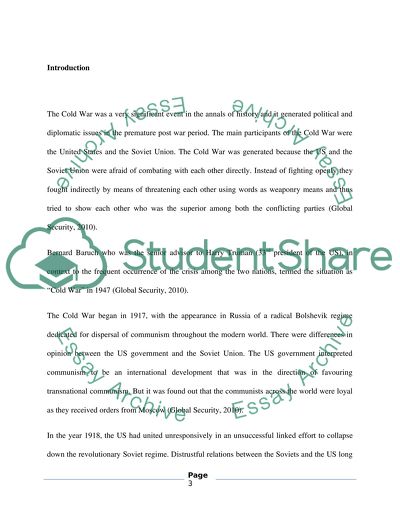Cite this document
(Cold War Assignment Example | Topics and Well Written Essays - 1500 words, n.d.)
Cold War Assignment Example | Topics and Well Written Essays - 1500 words. https://studentshare.org/history/1572941-who-or-what-started-and-perpetuated-the-cold-war
Cold War Assignment Example | Topics and Well Written Essays - 1500 words. https://studentshare.org/history/1572941-who-or-what-started-and-perpetuated-the-cold-war
(Cold War Assignment Example | Topics and Well Written Essays - 1500 Words)
Cold War Assignment Example | Topics and Well Written Essays - 1500 Words. https://studentshare.org/history/1572941-who-or-what-started-and-perpetuated-the-cold-war.
Cold War Assignment Example | Topics and Well Written Essays - 1500 Words. https://studentshare.org/history/1572941-who-or-what-started-and-perpetuated-the-cold-war.
“Cold War Assignment Example | Topics and Well Written Essays - 1500 Words”. https://studentshare.org/history/1572941-who-or-what-started-and-perpetuated-the-cold-war.


